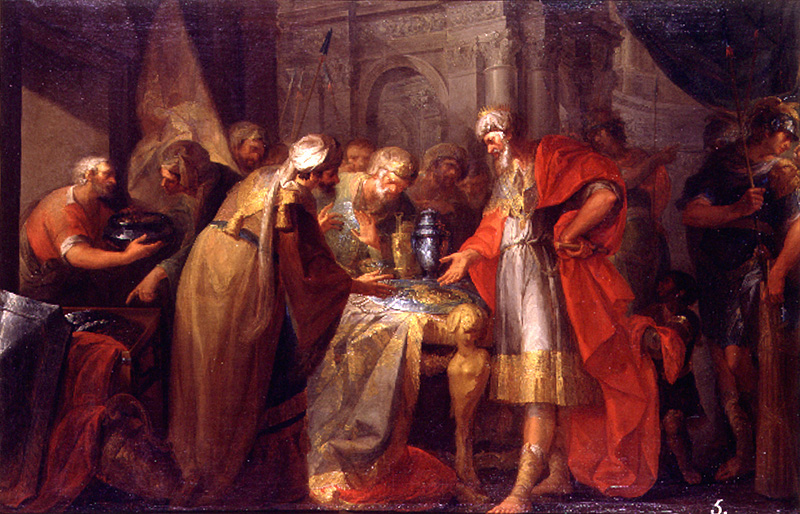What Hezekiah Taught Me About Christian Modesty
“Be modest in your appearance, and don’t show off your treasures,” I told my two daughters.
As my daughters were growing up, we spoke frequently about Christian modesty.
I often reminded my two girls about Hezekiah, a king of Israel. His is a poignant story, one not typically related to modesty, that I first heard on the radio while driving one day. I don’t remember who spoke, but the important lesson has stuck with me to this day.
In 2 Kings 20, Babylon’s powerful king dispatched envoys with letters and a gift to Jerusalem after learning that Hezekiah had made a remarkable recovery from a terminal illness.
With this visit, Hezekiah had a marvelous mission opportunity. He could introduce idol-worshipping Babylon to God by crediting Him for his health. God had performed two miracles: added 15 years to Hezekiah’s life and moved back the sun by 10 degrees as a sign that He had heard the king’s tearful prayers.
But Hezekiah decided to lead the Babylonian envoys on a grand tour of his “very great riches.” He had “made himself treasuries for silver, for gold, for precious stones, for spices, for shields, and for all kinds of desirable items; storehouses for the harvest of grain, wine, and oil; and stalls for all kinds of livestock, and folds for flocks. … God had given him very much property” 2 Chronicles 32: 27-29, NKJV).

What Did They See?
After the envoys departed, the prophet Isaiah asked Hezekiah about the visitors and the purpose of their trip. Then he inquired, “What have they seen in your house?” (2 Kings 20:15).
Hezekiah answered, “They have seen all that is in my house; there is nothing among my treasures that I have not shown them.”
Isaiah rebuked the king for showing off his wealth instead of pointing Babylon to the God of heaven. As a result, he said, Babylon would seize Israel one day and take its people into captivity for several generations.
I told my daughters that I wanted them to remember this story while dating.
While Hezekiah certainly was blessed and surrounded by beauty, the only beauty God wished for Hezekiah to share was the one that shone from within him. It wasn’t necessary to show all his wealth and, in the end, it led to the destruction of Jerusalem.
“Be modest in your appearance, and don’t show off your treasures,” I said. “Your treasures are meant only for your husband after marriage.”
I encouraged my daughters to, with God’s help, guard themselves so they would never be forced to acknowledge, “This boy has seen all that is in my house; there is nothing among my treasures that I have not shown him.”
Point Others to God
Instead, I urged my daughters to dress and act in ways that pointed others to God.
We also spoke about the consequences of premarital sex. Just as several generations of Hezekiah’s descendants suffered because of his mistake, immoral behavior can lead to generations of challenges. It can interfere with future relationships, your confidence and esteem, and can lead to a child conceived outside of marriage.
Just as the next four generations of Israel suffered because of Hezekiah’s choice, so might their family suffer because of their choice. The act of intimacy before marriage can carry ripple effects to each generation.
Praise God, my daughters took the story of Hezekiah to heart. Ellen, now married seven years, together with her husband enjoy ministry together, They have given my husband and me a wonderful grandson. My other daughter, Lisa, is engaged to be married soon, also to a young man who loves God who is committed to placing God first in their relationship.
May God help us all to be modest and to save our treasures for our spouses.
Merle Poirier is operations manager at Adventist Review Ministries.





